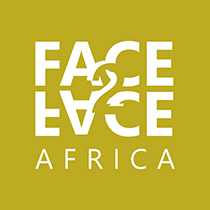Pierre Omidyar, the founder and co-owner of online shopping site eBay, has disclosed plans to provide some 26,000 Kenyans with a fixed daily income for a period of 12 years.
Through his charity GiveDirectly, Omidyar plans to donate $500,000 to fund a project in Kenya that will give thousands of people a guaranteed regular income, according to Time.
The project will make cash payouts to more than 26,000 people in 200 Kenyan villages, with about 6,000 of those people receiving a long-term basic income for 12 years.
Beneficiaries of the scheme are expected to receive about KSh75 ($0.75) per day, approximately 50 percent of the typical adult income in rural Kenya.
Development economists have described the project as one of the most ambitious experiments in the concept of Universal Basic Income (UBI).
UBI is born out of the idea that paying the poor and disadvantaged members of society a regular income enough to meet their basic needs is perhaps the best way to pull large numbers of people out of poverty.
Many leading economists propose that it could serve as an effective system of income redistribution in society.
In a post on social media, Omidyar representatives said they believe “cash transfer programs can potentially help to address bigger issues facing our society, such as rising income volatility, lack of secure benefits, social instability, and the changing nature of work.
“Concerns around these themes have recently sparked growing attention to a particular form of cash transfer: the idea of universal basic income (UBI) — a transfer that would be regular, long-term, a meaningful amount, and available to everyone.”
Who Is Omidyar?
Omidyar, 49, is a French-born Iranian-American entrepreneur and philanthropist with an estimated net worth of $8.5 billion. His Omidyar Network functions as both a charity and a social engineering investment firm.
His representatives emphasize that the idea of UBI is an experiment, adding that experts plan to study the impact on society and release results in the coming years.
“Even though we know that cash transfers in developing countries help reduce poverty and improve outcomes for families, these have not been tested on a long-term basis or with a universal beneficiary pool,” his representatives said.




